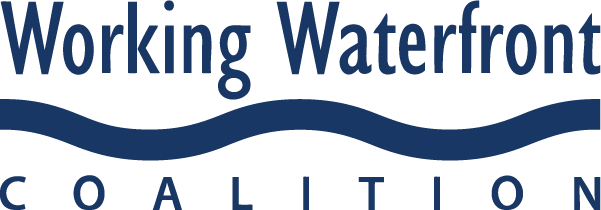
Ellen Wax, Former Executive Director
Working Waterfront Coalition
Harbor businesses concerned about environmental health and economic vitality of the Portland harbor.
The City of Portland is updating their economic opportunities analysis (EOA); a little-known state-wide planning requirement that identifies likely industrial and other economic development opportunities and corresponding employment land needs for the community. However, in this city, history has shown this process typically results in further regulation on harbor businesses, impacting their growth.
Now more than ever, Oregon needs a healthy private sector to provide jobs, preserve urban vitality, support rural productivity, while generating revenue for critical public services.
We are asking the City of Portland to support harbor businesses; the jobs they produce, the taxes they create and opportunities to improve income inequality in this community.
A recent economic presentation by Mike Wilkerson of EcoNorthwest to industrial businesses gathered at Daimler headquarters validated what many have been feeling; Portland and Multnomah County face a grim near-term outlook. Without specific solutions, vacancy rates downtown, especially among office and retail properties, will continue to climb, impacting not just the Portland downtown, but the entire region. Concerns about tax burden, public safety, and changing realities around how and where people work resulted in commercial enterprises looking elsewhere to locate.
https://www.portlandtribune.com/business/study-portland-region-population-losses-are-new-normal/article_745b0cda-6dd7-11ee-aae6-7f59e364337b.html
With commercial businesses moving out of Portland and taking their employees and tax revenue with them, the solidarity of the working harbor businesses coupled with new opportunities offered by the recent federal CHIP and Science ACT incentives and significant federal investment in clean energy and infrastructure offer a bright spot on the economic horizon.
Within walking distance of many of Portland neighborhoods, are thousands of Portlanders employed in industries along the Willamette River, that receive family wages, benefits, and retirement programs. They build some of the most unique infrastructure; like bike bridges, street cars, electric trucks, and barges as well as provide the largest manufacturing and recycling of metal products in North America.
Today, the harbor employs nearly 30,000 workers. Employment growth has averaged two percent per year since 2010. While many of these jobs pay in excess of $70,000, the average wage salary for several harbor companies is greater than $98,000. Harbor jobs contribute approximately $1.8 billion in personal income to the region’s economy.
Industrial jobs standout as an opportunity to improve income inequality in Portland. Over half of middle wage jobs for people without bachelor’s degrees in the metropolitan area are industrial jobs according to the City of Portland. Harbor businesses offer a variety of middle-income job options that do not require an advanced degree and have a progression to high income earnings. They also offer second chance employment, for those who have paid their debt to society and looking for meaningful employment.
In addition to employment, these businesses provide work force development programs, corporate giving, tax revenue and volunteer opportunities in the community. Apprenticeship support and outreach to high school, community college and trade programs to recruit employees is standard practice.
Not to be overlooked is the harbor businesses’ relationship with over 250 smaller companies throughout the Metro are for products, material delivery, logistics and finance. This ecosystem of economic inter-dependency flows throughout the Portland metro area and without these hundreds of smaller businesses supporting them, neither could not exist.
So, when the Planning Commission and City Council are asked, in the next several months, to support an outcome that further constrains the economic opportunities of the harbor businesses we urge your help to say “No.”
Ask the City of Portland to support these harbor businesses; the jobs they produce, the taxes they create and opportunities to improve income inequality in this community, instead of adding to their burden and reducing their interest in growing and remaining here.

